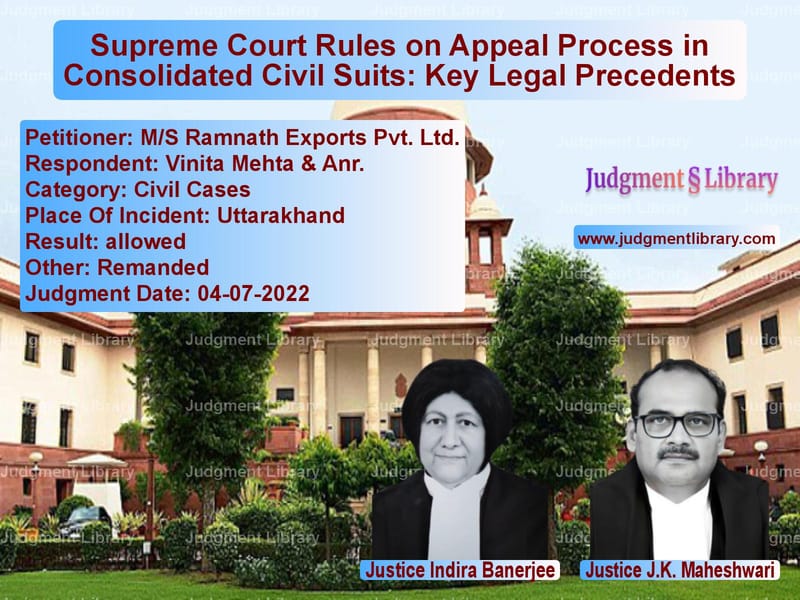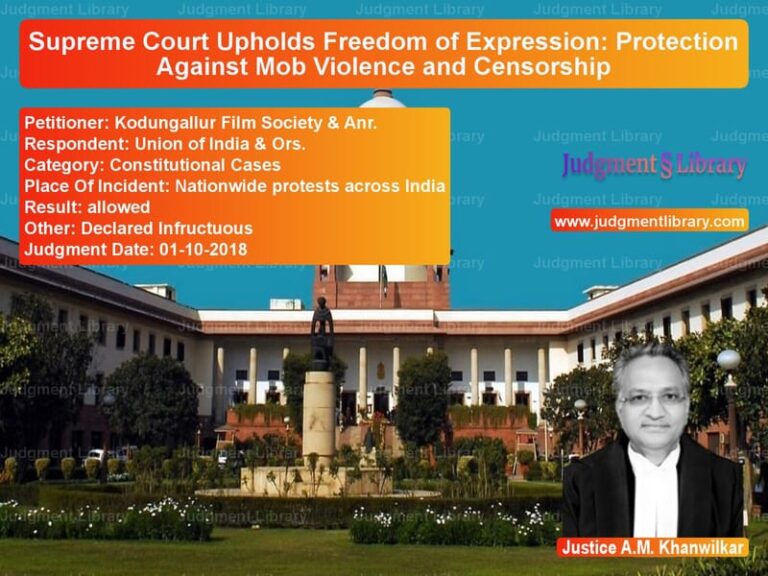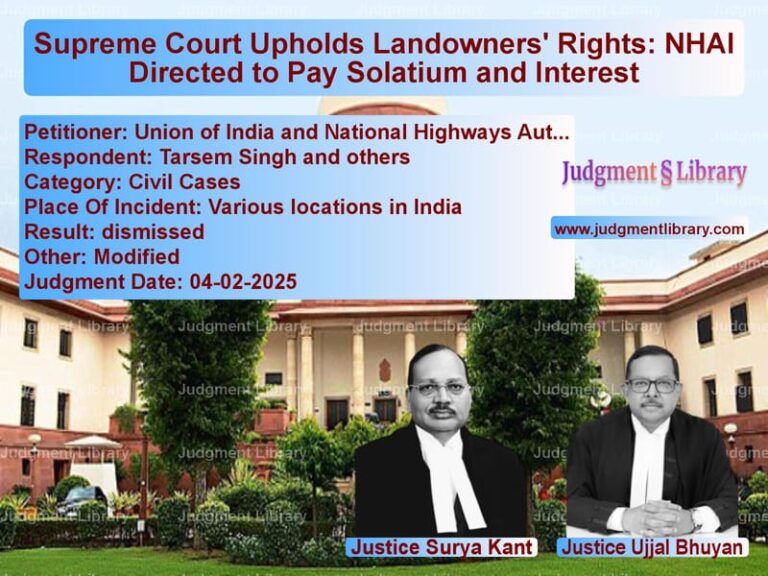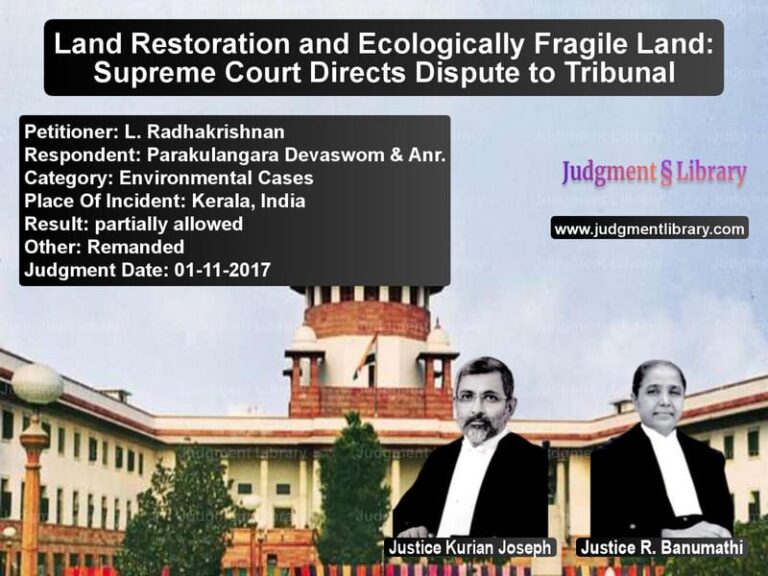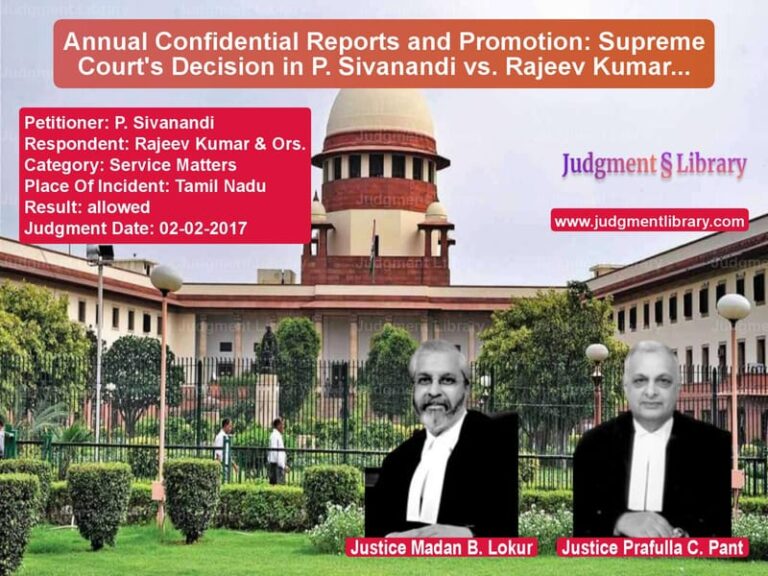Supreme Court Rules on Appeal Process in Consolidated Civil Suits: Key Legal Precedents
The case of M/S Ramnath Exports Pvt. Ltd. vs. Vinita Mehta & Anr. presented an important legal issue concerning appeals against multiple decrees arising from consolidated civil suits. The Supreme Court’s ruling in this case clarified the procedural requirements for filing appeals and the application of the principle of res judicata in such matters.
Background of the Case
The dispute emerged from two civil suits regarding ownership and access rights to a passage between two properties. The respondents filed Suit No. 411 of 1989, seeking a permanent injunction against the appellant, while the appellant initiated Suit No. 419 of 1993, seeking an injunction against the respondents.
Since the subject matter of both suits was interconnected, they were consolidated for trial and decided through a common judgment by the trial court. The trial court ruled partly in favor of the respondents in Suit No. 411 of 1989 and dismissed Suit No. 419 of 1993 filed by the appellant. Consequently, the appellant approached the High Court of Uttarakhand by filing a single appeal challenging both decrees.
Petitioner’s Arguments (M/S Ramnath Exports Pvt. Ltd.)
- The appellant argued that since the trial court had delivered a common judgment, a single appeal challenging both decrees was justified.
- The appellant’s first appeal was admitted in 2008, and objections regarding maintainability were raised by the respondents only at a later stage.
- The appellant had filed an application (CLMA No. 4365 of 2008) seeking permission to maintain a single appeal, but the High Court dismissed the appeal without deciding on the application.
- The High Court erred in applying the principle of res judicata to prevent the appeal, as both suits had been consolidated.
Respondent’s Arguments (Vinita Mehta & Anr.)
- The respondents contended that each suit had an independent cause of action, requiring separate appeals.
- The consolidation of suits was procedural and did not eliminate the necessity of filing separate appeals.
- The appellant failed to file separate appeals within the limitation period, rendering the decree in Suit No. 411 of 1989 final.
- The absence of a separate appeal against Suit No. 411 of 1989 before the District Judge meant that the trial court’s judgment had attained finality.
Supreme Court’s Observations
After examining the procedural aspects and legal precedents, the Supreme Court noted:
- The High Court had failed to decide the appellant’s pending application (CLMA No. 4365 of 2008) concerning the maintainability of a single appeal.
- The principle of res judicata applies when separate suits are independently adjudicated, but in cases of consolidation, the approach should be different.
- The dismissal of the appeal purely on procedural grounds, without considering the appellant’s arguments on maintainability, resulted in prejudice.
- The trial court’s common judgment necessitated a flexible approach in the appeal process to ensure fair adjudication.
Key Legal Precedents Considered
The Supreme Court relied on several previous judgments to support its reasoning:
- Shiv Shakti Co-operative Housing Society vs. Swaraj Developers (2003): Held that procedural technicalities should not prevent access to justice.
- Union of India vs. Ibrahim Uddin (2012): Emphasized that appellate courts must consider procedural fairness while interpreting procedural laws.
- State of Maharashtra vs. Ramdas Shrinivas Nayak (1982): Reiterated that consolidation of suits does not necessarily eliminate the need for separate appeals unless expressly provided for.
Supreme Court’s Ruling
The Supreme Court set aside the High Court’s order and remanded the matter for reconsideration, with the following directives:
- The High Court must first decide the pending application (CLMA No. 4365 of 2008) on the maintainability of a single appeal.
- The High Court must then assess whether separate appeals are mandatory and allow the appellant to rectify any procedural defects.
- If required, the appellant should be granted the opportunity to file separate appeals to comply with procedural requirements.
- Procedural technicalities should not prevent substantive justice, and the High Court must ensure that the appeal is heard on its merits.
Implications of the Ruling
The Supreme Court’s judgment has significant implications for civil litigation:
- Judicial efficiency: Clarifies that procedural rules should not obstruct justice, especially in cases involving consolidated suits.
- Res judicata in consolidated suits: Confirms that consolidated suits require a nuanced approach when applying procedural doctrines.
- Appellate jurisdiction: Reinforces the need for appellate courts to decide preliminary applications before rejecting appeals on technical grounds.
- Access to justice: Ensures that litigants are not unfairly denied their right to appeal due to procedural ambiguities.
The ruling provides clarity on the appeal process for cases involving multiple decrees, balancing procedural compliance with substantive justice.
Petitioner Name: M/S Ramnath Exports Pvt. Ltd..Respondent Name: Vinita Mehta & Anr..Judgment By: Justice Indira Banerjee, Justice J.K. Maheshwari.Place Of Incident: Uttarakhand.Judgment Date: 04-07-2022.
Don’t miss out on the full details! Download the complete judgment in PDF format below and gain valuable insights instantly!
Download Judgment: ms-ramnath-exports-vs-vinita-mehta-&-anr.-supreme-court-of-india-judgment-dated-04-07-2022.pdf
Directly Download Judgment: Directly download this Judgment
See all petitions in Property Disputes
See all petitions in Contract Disputes
See all petitions in Judgment by Indira Banerjee
See all petitions in Judgment by J.K. Maheshwari
See all petitions in allowed
See all petitions in Remanded
See all petitions in supreme court of India judgments July 2022
See all petitions in 2022 judgments
See all posts in Civil Cases Category
See all allowed petitions in Civil Cases Category
See all Dismissed petitions in Civil Cases Category
See all partially allowed petitions in Civil Cases Category

